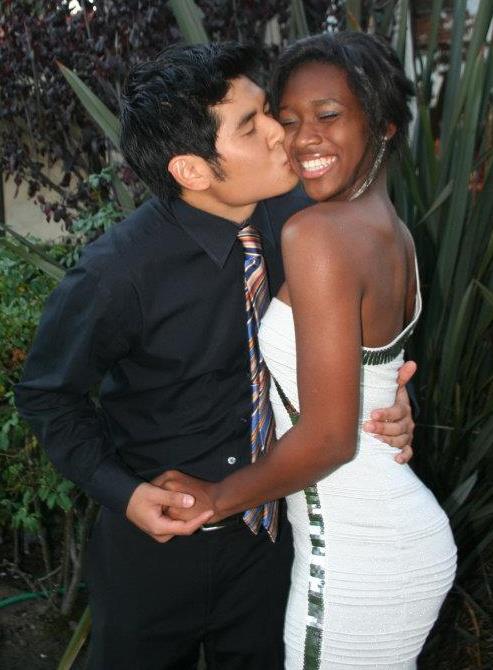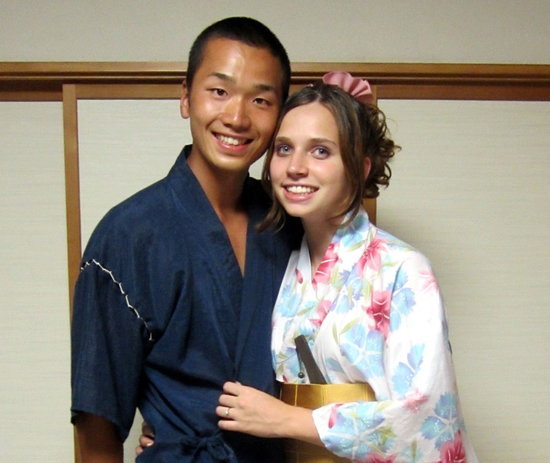

How do australians feel about interracial dating - something
Mixed race couples still face racism in Australia
This is 2016 and so you wouldn’t even think that was even worth mentioning. But the fact is, reasonably often this affects the way other people treat us.
When we first got together, I just didn’t notice. Or perhaps it’s more accurate to say I refused to notice. (Backstory: I spent years at an international school where every second person had mixed-race parents. For me, this was just an everyday occurrence.)
Then one day when our eldest daughter, Elsa, was about 18 months old we took her to the doctor. My husband, Don, was holding Elsa in his arms at the reception counter. In the familiar way of a couple, I was standing to his left and our arms were casually touching.
A lady standing to the right of Don commented on how cute Elsa was and then asked him: “Where’s your wife?”
Don pointed to me and the lady went bright red in the face and started stammering: “Oh, oh.”
She was clearly embarrassed; I’m not a mind reader but imagine this must have been because Don looks Asian. The woman made the assumption he’d have an Asian wife.
The second time I really noticed being treated oddly was when we went to a fancy restaurant for dinner. Don walked in the door first, followed by me. The tall (white) waiter looked straight past him and asked me: “Have you got a reservation?”
“My husband made a reservation,” I said, pointedly looking over at Don and thereby forcing the waiter to address him.
To be frank, these experiences are unsettling. I don’t want to view my family as unusual because of our skin. But Don — a Filipino Australian who grew up in an all-white suburb of Adelaide — has always maintained that sadly, these interactions are not anomalies.
Treating mixed-race couples as peculiarity is peculiar in itself, not least of all because pairings like mine are so common. In 2006, 30 per cent of all couples in Australia involved partners of different ancestries.
Simon, a friend of a friend, has also had some strange reactions to his mixed race relationship.
“I’m white, she’s black. Two things regularly happen at the shops — being served separately while standing together, or me being asked: ‘Yes? Can I help you?’ on the assumption that I am a weird bystander with no sense of personal space. It’s mostly funny!”
While Simon clearly has a better sense of humour than me, there are some darker implications.
In August this year, Yin Paradies, a Professor of Race Relations at Melbourne’s Deakin University wrote a fascinating article explaining that racism can actually make us sick.
The same month the University of Washington released research showing “bias against interracial romance is correlated with disgust.”
This study also finds “images of interracial couples evoke a neural disgust response among observers.”
“These findings are particularly concerning, given evidence of anti-social reactions (e.g., aggression, perpetration of violence) to dehumanised targets,” the researchers write.
Before you get too down about it, the US research doesn’t necessarily translate to Australia.
Dr Natascha Klocker is a Senior Lecturer in Human Geography at University of Wollongong. Along with PhD Candidate Alexander Tindale, Dr Klocker studied 65 mixed race couples from Darwin and Sydney, focusing on their experiences of daily life.
“Our interviewees have tended to be couples in which the two partners are ‘visibly different’ from one another and, therefore, they are the types of couples that we would expect might be particularly likely to experience negative treatment,” Dr Klocker explains.
“We specifically asked couples whether they or their children have experienced racism, and how they feel when they are in public places together,” she says.
Dr Klocker — who is married to a Tanzanian bloke herself — says her interviewees mainly had “ordinary” experiences and felt “accepted by their families and friends.”
“Most feel that they have not been treated differently to other couples,” Dr Klocker says, describing this as “a very exciting outcome.”
“The couples who we have spoken to feel that Australia, in 2016, is a great place to be in a mixed-ethnicity relationship,” she says.
However, this doesn’t mean everything is rosy all the time. Some participants in the study did report experiences such as:
• Noticing stares when they were out in public. (But these were generally perceived as being due to curiosity, rather than animosity.)
• Friends or colleagues making jokes that play on ethnic stereotypes, or questioning whether the relationship was legitimate (or for a visa)
• The ethnic minority partners in the relationships sometimes reported poor service in shops or restaurants.
• When the ‘white’ parent is out alone with the child, people relatively frequently ask whether the child is adopted or occasionally, if the child is pale skinned but is with his or her darker skinned mother, people would assume the mother was the nanny.
In relation to the last point, Dr Klocker — who has two children — has personally been asked by strangers: “Where did you get her?” and “How long have you had her?”
Another friend of mine, Jenny, has a Thai mother and Australian father. As a child, her father had custody of her and her sister but they lived in Asia.
“We often saw older white males with younger Asian women. Because I look Asian myself, I was extremely conscious of how it looked to others when I walked with Dad.
“So I always walked behind him and never showed affection to Dad in public,” Jenny says, “It affects me to this day. I always loudly say the word ‘Dad’ so people know he’s my father.”
Tell us! What’s your experience of being in a mixed race couple?
Ginger Gorman is an award winning print and radio journalist, and a 2016 TEDx Canberra speaker. Follow her on Twitter @GingerGorman

-
-
-